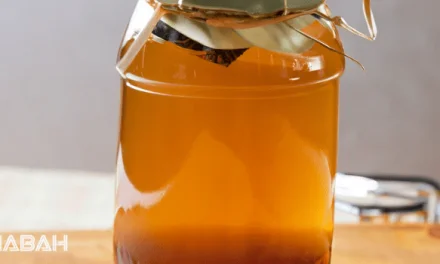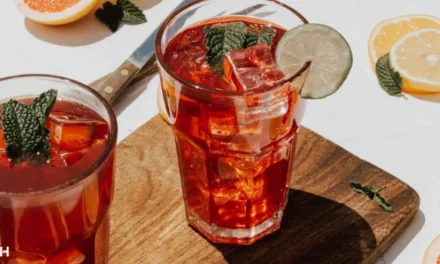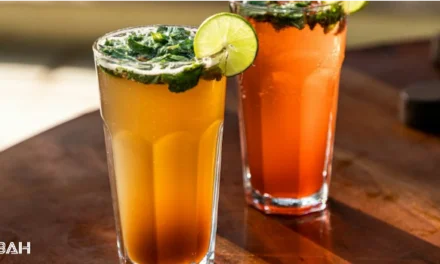As a devout Muslim, I have always been fascinated by the intricate guidelines that govern our dietary choices. One topic that has sparked interest is that some Muslims may think rum is halal because it is produced from sugarcane. Yes, I know alcohol is outright haram, but stay with me as there are some interesting arguments about the possibility of rum being halal as you’ll find out below.
Exploring the Permissibility of Rum and Alcohol in Islamic Food and Drink
Rum is a distilled alcoholic drink made from sugarcane byproducts like molasses or directly from sugarcane juice. Rum has a history intertwined with Islam and the Middle East.
Background on Rum:
- Originated in the Caribbean in the 17th century
- Mainly produced in the Caribbean, Central America, and South America
- Made from sugarcane derivatives through a process of fermentation and distillation
- Alcohol content ranges from 40-95%
- Color varies from clear to brown
Rum and Islam:
- Sugarcane cultivation originated in Asia and spread via Muslim traders
- Early rum production utilized skills of slaves from Muslim African nations
- Rum associated with colonial era plantations in Islamic regions
Table summarizing key points on rum and Islam:
| Item | Description |
|---|---|
| Sugarcane Origins | Native to Asia, spread by Muslims to Africa, Spain |
| Rum Production | Started in 17th century Caribbean, utilized skills of Muslim African slaves |
| Islamic Perspective | Considered an intoxicant, prohibited according to majority of scholars |
| Scope | Debate whether prohibition applies only to drinking or all uses |
The issue of whether rum is permissible remains widely debated among Islamic scholars and communities. This background provides context for further examining the arguments on both sides.
Arguments that Rum is Haram in Islam(Forbidden)
Many Islamic scholars and interpretations of the Quran conclude rum is haram (forbidden) based on the following arguments:
-
Rum is an alcoholic beverage that causes intoxication like other prohibited drinks:
“Liquor and all other intoxicants are Haram.” -
The Quran clearly prohibits “khamr” which refers to alcoholic drinks that intoxicate:
-
“O you who have believed, indeed, intoxicants, gambling, [sacrificing on] stone alters [to other than Allah], and divining arrows are but defilement from the work of Satan, so avoid it that you may be successful.” (Quran 5:90) -
Rum goes through fermentation and distillation which makes it haram even if the base ingredients like sugarcane are halal:
“However, the process of fermentation converts these Halal foods or ingredients into intoxicating items.“ -
Islamic religious bodies like MUI and JAKIM prohibit rum:
“The MUI fatwa stated that contemporary drinks with rum content are haram because they contain khamr (intoxicants).” -
Scholars emphasize rum’s intoxicating effect rather than its ingredients. Even small amounts can intoxicate.
-
Cooking with rum still involves using an intoxicant which seems impermissible.
In summary, these arguments emphasize rum’s intoxicating nature as a liquor, and its prohibition in the Quran and by Islamic dietary laws. Even if rum is made from halal ingredients like sugarcane, the production process makes it haram.
Arguments that Rum is Halal (Permissible)
Some Islamic interpretations and scholars argue rum may be permissible in certain contexts based on the following:
-
The Quran does not explicitly prohibit rum since it originated after the Quran:
"Traditional Islamic jurisprudence specifies that alcohol derived from grapes, dates or raisins, is haram. Rum does not fit into this category.” -
Rum can be made from halal ingredients like sugarcane, a permissible plant:
"Rum is made from sugarcane, which is not prohibited in Islam.” -
Rum has a lower alcohol content compared to other prohibited liquors:
“Rum’s alcohol content ranges between 40% to 95%.” -
Using rum in cooking or food preparation does not lead to intoxication in most cases:
“Using alcohol in food and confectionary preparations is permissible as long as it does not cause intoxication.” -
There are differences in opinion among Islamic schools of thought and scholars:
“There are differences of opinion on this issue among various schools of Islamic law and scholars.”
In summary, these arguments state rum is not explicitly forbidden in the Quran, it has halal ingredients, and its use does not always lead to intoxication. There are reasonable grounds in Islamic law for permitting rum in specific contexts, though scholars largely disagree.
Guidelines for Permissible Use In Islam
Given the disagreements among interpretations of Islamic law, some guidelines suggest:
-
Avoid drinking rum recreationally since its intoxicating effect is widely agreed to be prohibited:
"It is best to simply abstain from rum based on the majority opinion that it is an intoxicant." -
Using rum in cooking or baking may be permissible if:
-
The rum is not added for its intoxicating effect
-
It constitutes a small amount that will not cause intoxication
-
The rum’s alcohol cooks off and evaporates during the preparation
-
-
Seek advice from knowledgeable Islamic scholars if unsure about rum’s use in a given food or dish
"One should exercise caution and refrain from using rum if its lawfulness is doubtful."
In cases where rum’s lawfulness seems unclear, taking the more conservative approach of avoiding it would be prudent according to the Islamic principle:
“If you have doubts about an action being halal or haram, then avoid it.”
So while limited rum usage may have a basis for permissibility, restraint is advisable whenever there is uncertainty.
Is Rum Halal – Frequently Asked Questions
What is rum?
Rum is an alcoholic beverage made from sugar cane byproducts, such as molasses or sugarcane juice. It is typically fermented and aged in barrels.
Is rum considered halal in islam?
The consumption of alcohol, including rum, is generally considered haram (prohibited) in Islam. Alcohol has intoxicating effects and is, therefore not permissible for Muslims.
Can Muslims drink alcohol?
According to Islamic law, consuming alcoholic beverages is strictly prohibited for Muslims.
Is there any halal rum available?
No, rum, being an alcoholic beverage, is inherently haram. There is no such thing as halal rum.
Does the aroma of rum make it haram?
No, the aroma of rum itself does not make it haram. It is the presence of alcohol and its intoxicating effects that make it prohibited in Islam.
Can non-alcoholic rum be considered halal?
No, even if a non-alcoholic version of rum exists, it still retains the name and characteristics of an alcoholic beverage. Therefore, it is not considered halal.
Can rum be used as a flavoring in food and still be halal?
According to Islamic scholars, the use of alcohol as a flavoring agent in food is a subject of debate. Some scholars consider it permissible if the alcohol content is negligible and does not intoxicate, while others strictly prohibit its use.
Is there any difference between rum and other alcoholic beverages in terms of halal status?
No, all alcoholic beverages, including rum, are considered haram in Islam, regardless of their specific types or origins. The prohibition extends to any drink containing alcohol.
Are there any alternatives to rum for Muslims?
Yes, there are plenty of non-alcoholic beverages available that Muslims can enjoy. These include various non-alcoholic mocktails, juices, and other halal-certified drinks.
What do Islamic sources say about the consumption of alcohol?
The Quran and hadiths clearly state that consuming intoxicants, including alcohol, is strictly prohibited in Islam. Muslims are advised to stay away from any form of intoxication and to adhere to the teachings of Allah and the Prophet Muhammad (peace be upon him).
Conclusion
In conclusion, there are disagreements over the permissibility of rum in Islam:
-
The majority opinion is that drinking rum is haram based on:
-
Rum’s intoxicating effect
-
Quranic injunctions against khamr (intoxicants)
-
Rulings from Islamic dietary laws and organizations
-
-
However, there are minority arguments that rum may be halal in some contexts:
-
Using small amounts in cooking
-
Consuming foods where rum is not added for intoxication
-
-
Guidelines suggest avoiding rum where doubt exists, and exercising caution if attempting to utilize it in permissible ways





